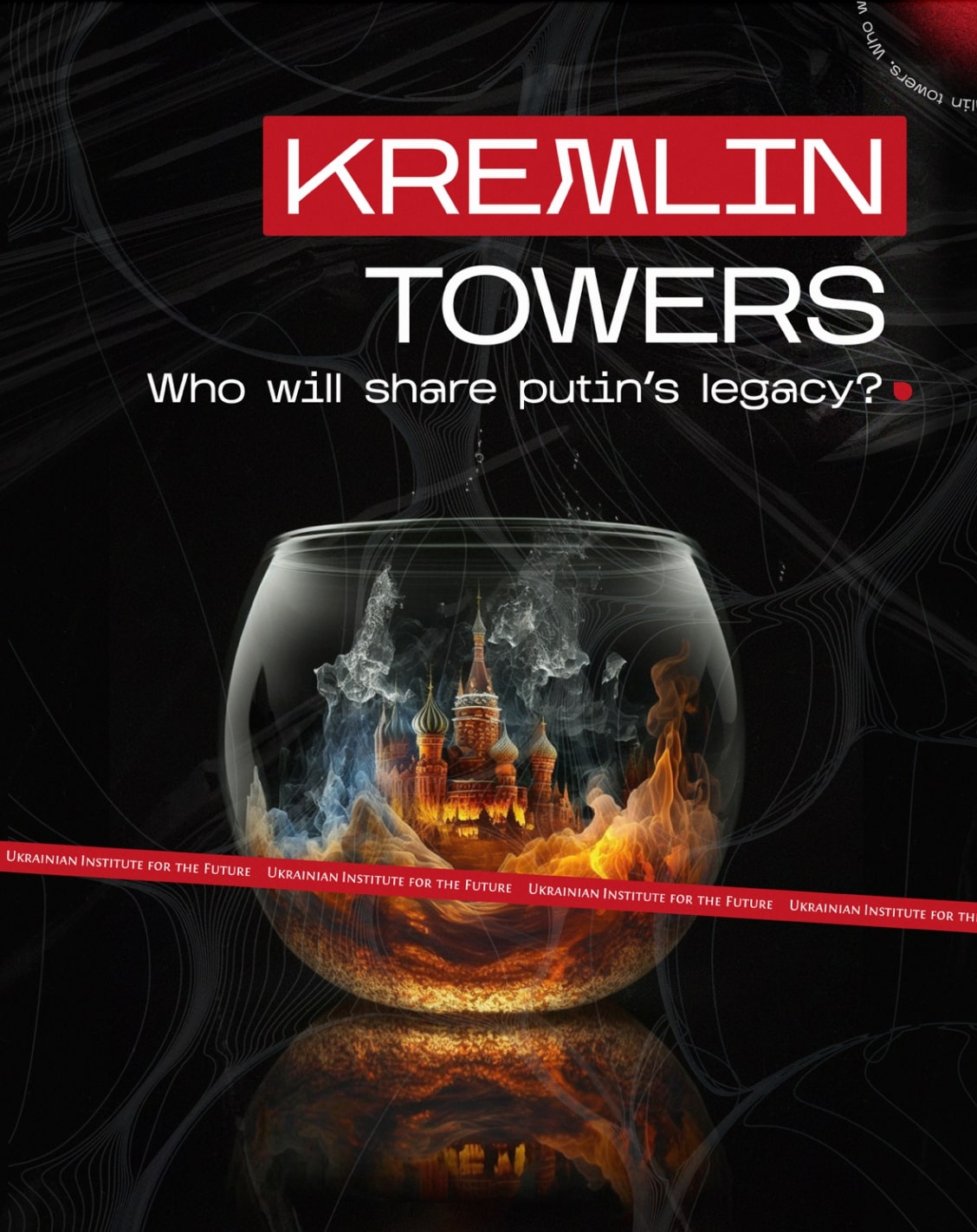Ukrainian Institute of the Future presents a report “Kremlin Towers. Who will share Putin`s legacy?”.
One of the biggest oversights of Ukraine after 2014 was the lack of a systematic study of Russia: the economy, culture, value frameworks of the inhabitants, and political mechanisms. As a result, in 8 years of war (and the war began in 2014, not in 2022), there was no understanding of how decisions are made and, most importantly, how they are implemented in the Russian Federation. Even in sports, coaches and athletes study the opponent, but we considered it superfluous, trying to project our perception and usual mechanisms onto the Russian reality. And we were often wrong. But we continue to try to create myths in which we ourselves believe. Such as, for example, the broad “national liberation movement”, the ability of the Russian liberal opposition not to seize power, but to control the territory of its country. In the end, let’s remember how many times we celebrated the “year of the Russian Federation economic collapse” and how surprised we were when everything we had planned did not happen. This is on the one hand.
On the other hand, the continuation of parasitism in the Russian information field. Most of the Ukrainian media, for example, took information about events in the post-Soviet space, in Asia, and even in several EU countries from Russian sources. Then, changing the terminology, figuratively speaking, changing the “good and bad places”, they offered the product to the Ukrainian consumer. Thereby multiplying the misunderstanding of the enemy and, at the same time, imperceptibly for themselves, spreading the Russian thesis construction of showing the events in the world. Headlines changed, key theses, perhaps, too, and the rest of the web of implicit Russian was (and is) generously offered to the Ukrainian consumer.
The enemy must be known. Knowledge itself creates a foundation for adequate risk assessment and competent planning of our actions.
The Ukrainian Institute for the Future has already released several Russian thematic reports. This work was planned as early as 2021. February 2022 made its corrections but returned to the topic. The key idea of the work is to provide an understanding of how and by whom decisions are made in the Russian Federation. That is, to reveal the topic of “Kremlin towers”, which have been talked much about, but only a few people are able to describe.
In other words, this is a cross-section of the Russian elites. Where, the starting point (or criterion for analysing a person) is taken as his ability to make decisions at his level, and not publicity, activity in social networks or the frequency of mentions by the Russian mass media.
Influence groups and mutual support groups have been identified. But, most importantly (and this is the difference from other similar works), an attempt was made to assess the comprehensive potential of each of the groups — to what extent it has the entire set of necessary resources (power, economic, political, media, personnel). Because the ability to claim power depends on the completeness of resource provision. Everything you need is there – you can act yourself. If one or more resources are missing, we are talking about the need for a coalition. And now it is time to evaluate potential allies and opponents.
Of course, the described scheme is not static. And in a year and a half, it will require significant refinement. We also do not claim to be a “standard” approach, as we are sure that there are people and organizations capable of doing better. Our task, as we see it, is to provide a set of information for work and analysis right now and to create an incentive for the “Russian research” activation by others. And the schemes given in our report will be supplemented and updated regularly.
So, if you’re interested in discovering more about the potential power struggles that could arise in the Russian Federation after Putin’s passing, the decision-making process in Russia, and the significance of the “Kremlin Towers,” we encourage you to read our report.


Вам також буде цікаво:
Хто ми? Портрет українців очима українців
Євробачення-2017 – одна з найбільших загроз для Нацполіції України
Що робив “танкер” друзів Путіна біля “Північних потоків”?
Russia in details: events and trends in Russia over the last week (12.11-18.11)
Податок з продажів vs ПДВ
МАКРОЕКОНОМІЧНИЙ ДАЙДЖЕСТ УКРАЇНИ (липень 2024 року)